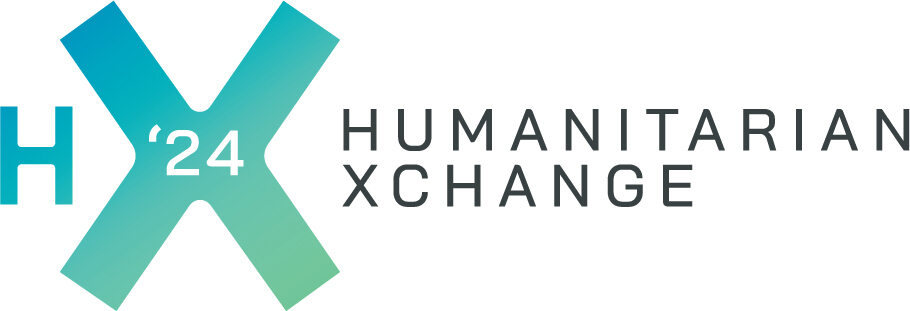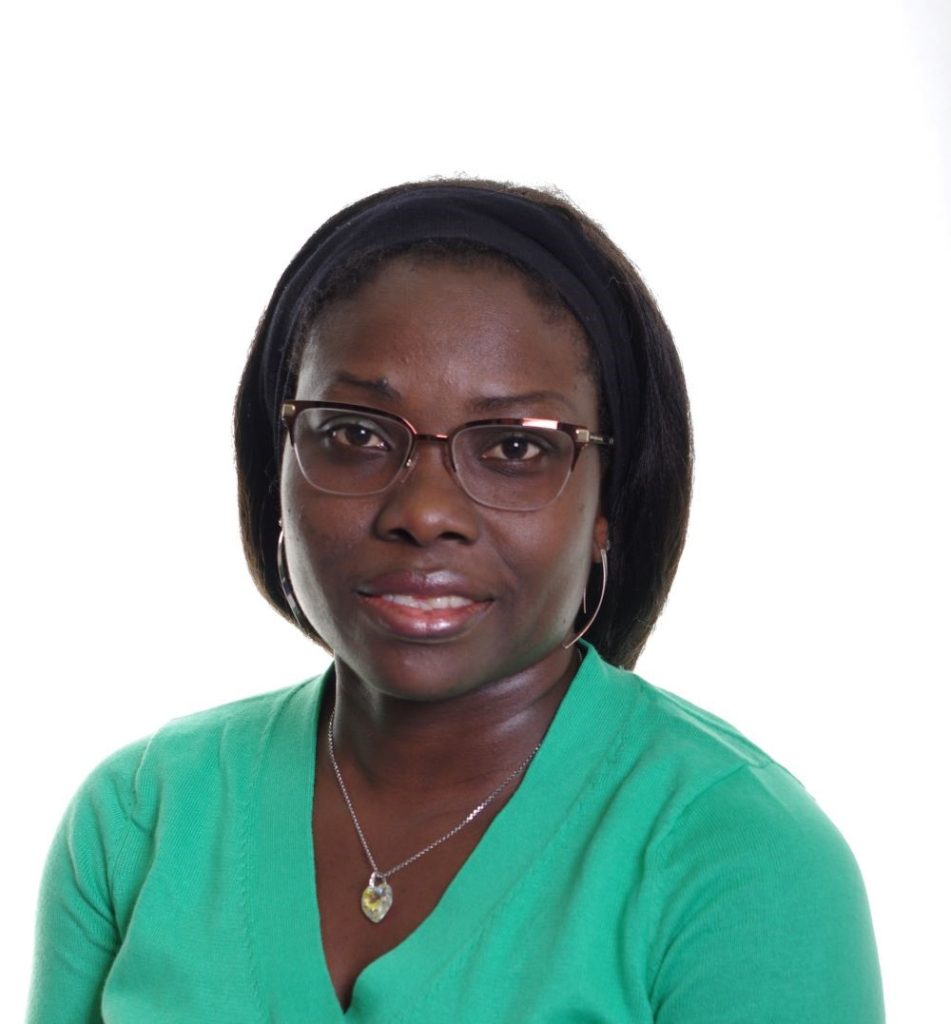26th April 2024

This week we were delighted to receive the news that the Humanitarian Xchange 2024 has been shortlisted in the Purpose Awards EMEA for Best Advocacy Campaign in the charity/NGO category!
The Humanitarian Xchange was established to create a much-needed global convening space for humanitarians, and as such, we are thrilled to receive this recognition of our initiative. We continue to strive to harness our networks to create lasting change and impact in the humanitarian sector at the systemic, organisational and individual level.
In today’s article we shine a spotlight on the impact HX24 has had on two delegates from the University of Derby who attended in-person at the Business Design Centre in London: academic Dr Dolapo Fakuade (Programme Director, MSc Intelligence, Security and Disaster Management) and her researcher, Tyler Spiers.
We caught up with them to hear their reflections, experiences and key outcomes from the day.
What were you looking forward to most about HX24?
Dolapo: I always set my objectives before attending any event. For HX24, my objectives were to network, learn and share with other attendees and stakeholders in the humanitarian sector.
My overall goal was to seek collaborators to work with and share knowledge for improving measures taken in the field in a challenging operating environment.
I was most keen on learning how the sector has grown, what other academic institutions are doing, and the collaboration between academia and the sector.
Not only were my objectives met, I was also impressed with how much progress has been made in the humanitarian sector, and the role HLA has taken in facilitating such an extensive network of stakeholders.
Tyler: I was most looking forward to being surrounded by other like-minded individuals at a wider capacity to what I have been before, all of whom have a clear interest in humanitarianism and how to contribute to positive influence and development, as well as being exposed to new ideas/concepts for me to consider in future work where relevant.
What were you hoping to gain from the event?
Dolapo: This is related to my objective and overall goal explained earlier. Any opportunity to network with like-minded people is always golden.
I did hope to gain more knowledge and understanding of different dimensions in which humanitarian assistance can be approached. I appreciated the involvement of the tech companies, policymakers, practitioners and academic institutions in the same environment, with the singular intention to explore solutions to several problems identified and discussed.
Tyler: I was hoping to expand my current knowledge and being exposed to new knowledge on the different dimensions and components of humanitarian aid, and getting further insights into some of the work that has and is still currently being done to improve how humanitarian aid and assistance is provided.
I was also hoping to learn more about the HLA and how it contributes to understanding humanitarianism.
What were your top three highlights from HX24?
Dolapo: It might be slightly challenging to compress my experience into three, but I’ll give it a go!
In no particular order of importance, one highlight is opportunity to interact with different organisations in the field. This was an eye-opener and a form of orientation into what others are doing, including common challenges such as security of humanitarian workers and community at risks.
Another highlight was the range of themes covered and speakers/facilitators from around the world. This reflects the HLA’s reach, collaboration and willingness of stakeholders to engage.
Finally, the level of coordination of the event itself on the day; having an exhibition, lunch, crowd movement and online sessions were impressive. Using good technology to connect everyone and communicate throughout the event was appreciated which is a reflection of how well the event was funded. Congrats to the HLA leadership and team for a successful event!
Tyler: The virtual reality set was a top highlight – it is something I have never experienced VR before, and it was intriguing to visualise the need for humanitarian aid/assistance in ways that I haven’t before.
Experiencing different ways of learning and how it is accessible to all, be that VR, workshops, online sessions, panel discussions, different stands with various organisations, etc was another highlight.
The general event I would say is a top highlight too – it was impressive to see the work put into organising and funding the event and how it ran so smoothly with no disruption or logistical/technical difficulties.
What was your key takeaway from HX24?
Dolapo: My key takeaway is informed by my overall goal. First, I left HX24 with more contacts than I came to the event with. For example, exposure to Nesta Collective Crisis Intelligence concept, as well as security risk management are areas of research and practice interest to me which I never knew was that advanced in the field. So, in terms of securing more collaboration and networks, that was a success and a major takeaway for me.
Another takeaway from HX24 is the potential researchable themes I identified and how experiences of stakeholders can be better captured for teaching and learning. I plan to continue to liaise with HLA regarding some of my observations and this specific takeaway.
Tyler: That there are countless dimensions to humanitarianism and providing aid/assistance at different capacities. There is still plenty of work to be done to make HA accessible to all who need it, especially in times of complex crises/polycrisis.
Do you have any follow-up actions or ideas after attending HX24?
Dolapo: I have a couple that align with one of my takeaways. One action is to liaise with HLA to convert security humanitarian research into learning course that can be made available on the Kaya site. If there’s an update, collaborate with HLA to organise webinar series that to explore solutions to some of the challenges or problems highlighted during the event.
I think from the closing remark, it is evident that there’s appetite for solutions to ongoing challenges, and some of the recurring problems associated with providing humanitarian aid and assistance in complex emergency situations. This action or idea would depend on whether there is update for such webinar series.
Another follow-up action for me is to invite HLA to University of Derby for a session with my postgraduate students. As at the time of granting this interview, this has already taken place (read about this visit here).
Beyond this, I have initiated discussing with HLA and partners to consider partnership for impact case study. There seems to be interest in this, thus for now, it’s watch this space!
Tyler: To continue work on the role of community (grassroots approach), CBOs and developing community resilience, as that was a common theme emerged from the sessions that aligned well with my postgraduate research. Potentially looking more into the role of communication (translations, accessibility, relevancy, internet) and media (transparency, NGO brand image, ‘cancel culture’, theatrical humanitarianism, using internet access as a weapon in some cases).
Could you sum up your HX24 experience in one sentence?
Dolapo: HX24 was a truly rewarding opportunity that appropriately combined knowledge sharing, learning and networking experiences that exceeded my expectations. Congrats once again to HLA and partners!
Tyler: My HX24 experience was insightful, enriching and useful in gaining knowledge, making links to research I have done during and post-MSc and motivational.
Thank you Dolapo and Tyler for joining us for HX24 and sharing your reflections!
About Dr Dolapo Fakuade
Programme Director, MSc Intelligence, Security and Disaster Management, at the University of Derby, UK.

Dr Dolapo Fakuade (Dolas) is a ‘pracademic’ with professional and academic experience in the United Kingdom (UK), New Zealand, UAE, USA, Australia, Germany and Singapore.
Drawing from her professional experience, and PhD in Hazard and Disaster Management and MSc Disaster Management qualifications, Dolas taught modules, and led policy and practice informing research in the aforementioned countries. Her experience designing and developing postgraduate and executive programmes for public and third sectors, span over a decade with awards and recognition for her learning and capacity development methods.
Dolas is also a consultant for the United Nations Institute for Training and Research (UNITAR) and other UN agencies informing stakeholders’ capacity and capability development projects. She brings her international experience, methods and understanding that learning ought to be tailored to learners’ needs to her current role at the University of Derby where she leads a diverse teaching team to achieve the learning goals of her postgraduate students. Her students have different security and disaster management backgrounds as well as early careers from the UK and different countries around the world.
Tyler Spiers gained his postgraduate degree in MSc Intelligence, Security and Disaster Management at the University of Derby. As a researcher, he has worked on research focusing on the role of community and sense of place in disaster response and recovery.